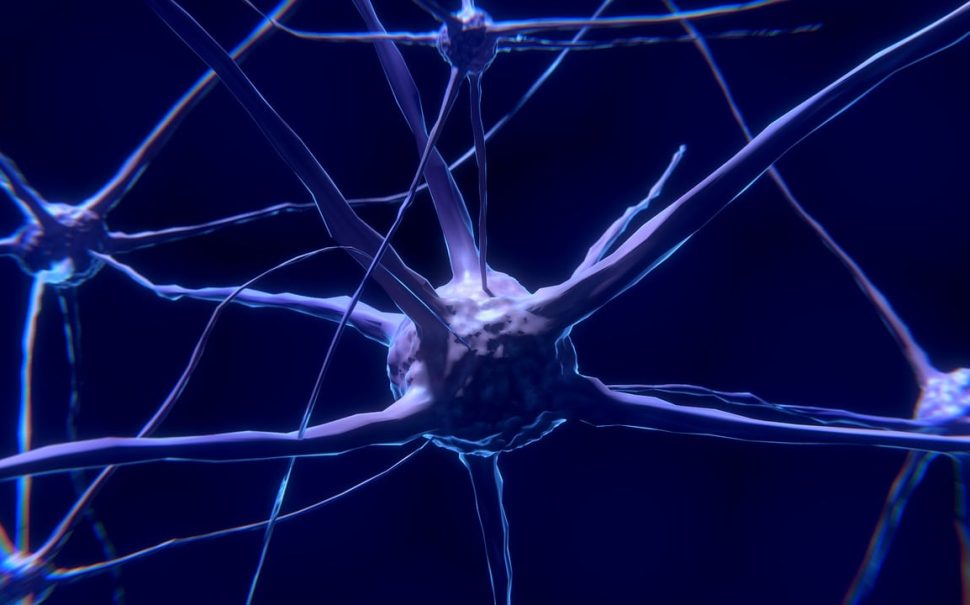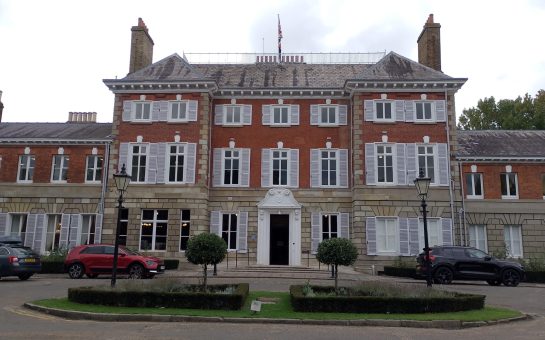Strokes are on the rise among young people, with new NHS data for 2024 revealing an increase in cases among those under 39.
Over the past two decades, strokes in this age group have surged by 13%, presenting challenges distinct from those faced by older survivors.
For those still working or supporting families, the impact of a stroke can be devastating both physically and financially.
Austin Willett, CEO of Different Strokes explained: “If you’re at retirement age you are not going to have to worry about returning to work to support your family, which is obviously something you would need to consider if you are of working age and have a stroke.
“In cases of young people, you may be unable to return to work for some time, and you might have to make changes to your job role.”
The data also shows that males in this age group have consistently accounted for a higher proportion of stroke cases than females.
Strokes among men under 39 increased by nearly a quarter, while strokes among women in the same age group only increased by 1%.
In 2004-05, males under 39 made up 53% of cases, compared to 47% for females of the same age.
By 2023-24, this gap had widened even further, with males representing 58% of cases, while females dropped to 42%.
Among those affected is Lewis Clasby, who had a severe stroke at 29 despite having no pre-existing health conditions.
When he collapsed at home, he initially believed he had passed out and went back to sleep.
Even after waking later in hot sweats, he delayed calling an ambulance in fear of wasting responders’ time and was unaware he was having a stroke.
He said: “The last thing on my mind was that I could be having a stroke.
“When they told me I thought not a chance, there was no way I could be having a stroke.”
The impact of Clasby’s stroke was devastating as a young person.
He said: “I worked so hard to get where I was. In my eyes your 30s are when you start living.
“I’d just had a kid, I had my own house, I had a partner, I literally had everything and then within one day it was just gone. My whole life changed within a second.”
Clasby previously worked as a machinist but had to move to the sales office at his company in the aftermath of the stroke.
Doctors later informed him that the stroke was caused by one of the largest blood clots they had ever seen, and initially warned that his chances of walking again were slim.
Reflecting on his recovery, Clasby added: “I understand why old people don’t put the effort in, because a lot of the time it just seems pointless.”
The rise in strokes among young people appears against a backdrop of increasing overall stroke admissions.
Across all age groups, hospital admissions for strokes have increased by 28% in two decades, rising from 87,069 in 2004 to 111,137 by 2024.
Those aged 50-59 experienced the highest increase, with admissions rising by 55% from 8,063 in 2004 to 12,533 by 2024.
This is compared to a 42% increase for those aged 60-69, and a 25% rise for ages 70-79.
Despite advances in care improving survival rates, strokes remain the fourth-leading cause of death in the UK, with 38,000 stroke-related deaths annually.
The new data shows that despite a 43.5% decrease in stroke mortality since 2001, stroke prevalence continues to rise.
Wes Streeting, Secretary of State for Health and Social Care, said: “These figures are shocking, particularly given the causes of stroke are largely preventable. Prevention will always be better than cure.”
Experts from the Stroke Association emphasise that lifestyle factors play a significant role in stroke risk.
Smoking, excessive alcohol consumption, unhealthy eating, and obesity all contribute to conditions like high blood pressure and blood clots, which increase the likelihood of a stroke.
Juliet Bouverie OBE, CEO of the Stroke Association, said: “These new figures support our own research that there’s been a steep rise in the number of people affected by stroke over the last 20 years, particularly among those of working age.”
The figures come as the NHS launched a major campaign, urging the public to call 999 immediately if anyone experiences even just one of the three most common symptoms of strokes, including struggling to smile (Face) or raise an arm (Arms), or slurring their words (Speech).
Dr David Hargroves, NHS National Clinical Director for Stroke, warned that even a brief delay in calling 999 could have catastrophic consequences.
He said: “When someone has a stroke, it’s estimated they may lose around two million brain cells a minute, which is why rapid diagnosis and treatment is critical.
“The first sign of a stroke might not seem like much, but face or arm or speech – at the first sign, it’s time to call 999.”
Dionne Hudson, 58, one of the survivors featured in the NHS campaign, recounted how she initially dismissed her symptoms when she suffered an ischaemic stroke in July 2024.
Like Clasby, she also chose not to call 999 and instead went to sleep, unaware she was having a stroke.
She said: “There was this voice in my head all through the night saying, ‘Dionne, you’re having a stroke’, and it would just not let up.
“Although I was aware of the FAST campaign, like many others I had a preconceived idea that strokes only happen to the elderly.
“When I woke up, I can only describe it as turning into a human pinball machine.”
Health professionals and charities are united in their calls for greater awareness, particularly among younger people who may not associate strokes with their age group.
Clasby credited his recovery to his mindset and determination, and in a message to young stroke survivors, he said: “Whatever the circumstances, do not give up.
“And don’t be scared to ring 999 like I was.”
With lifestyle changes and quicker recognition of symptoms, experts hope to reverse these worrying trends and reduce the devastating impact strokes can have on younger generations.





